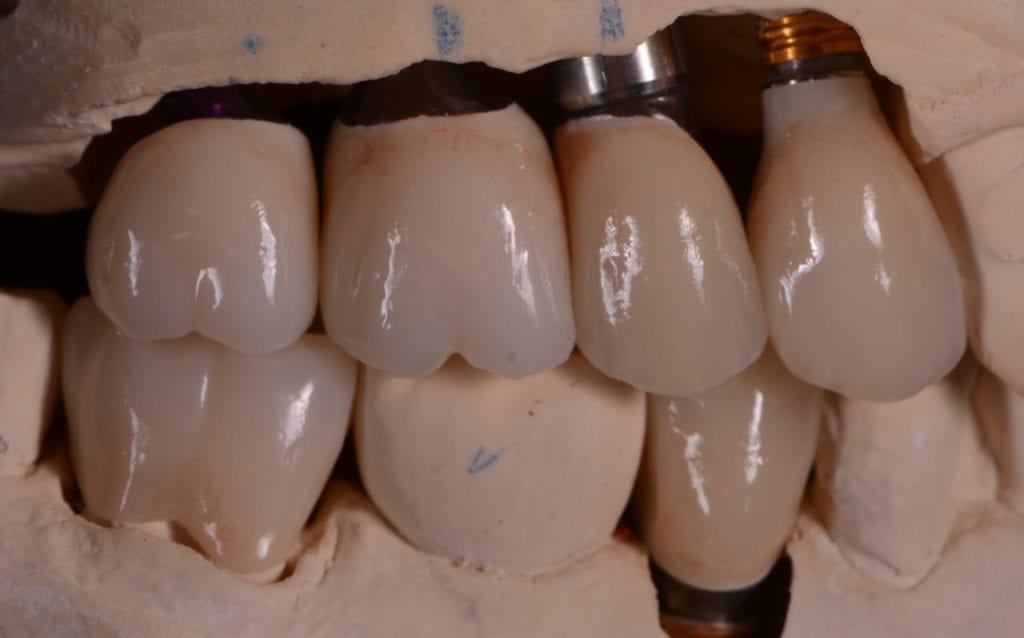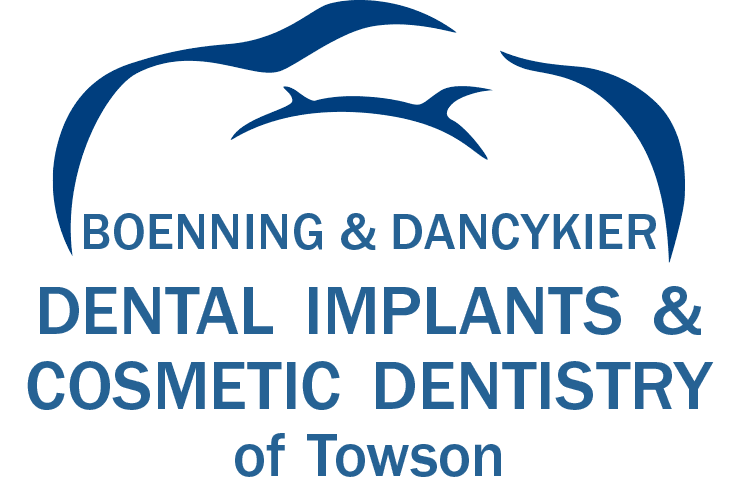Missing one or more teeth can affect not only the aesthetics of your smile but also your long-term oral health. Even if you have lost one tooth, the remaining natural teeth can shift and overcrowd to fill the gap. It can be difficult to clean between crooked and overcrowded teeth, which means it is easy for plaque to thrive.
Patients with missing teeth have a higher chance of developing gum disease and tooth decay. Seeking treatment as soon as possible is better for your oral health and will limit the damage. Failing to replace your lost teeth can:
- Impact your self-esteem
- Alter your speech
- Make it difficult to chew food
- Cause surrounding teeth to shift toward the gaps
- Increase your risk of gum disease and tooth decay
- Lead to bone loss in the jaw
- Alter your bite
- Decrease your overall quality of life
Replacing missing teeth not only prevents tooth and gum infections but also helps to restore full bite function. Dr. Keith Boenning and Nathan Dancykier provide dental treatments for dental concerns like missing teeth.
Our missing teeth treatments will blend in with your natural smile and last a long time. Our dentists provide examinations to assess your smile and determine the right dental treatment for your specific needs. We also take oral health, budget, and dental history into account to create an efficient treatment plan.

Replacing Missing Teeth
Dr. Boenning and Dr. Dancykier help our patients restore their smiles in our Towson dental office. We have an array of tooth replacement options to choose from. Some options include dental implants, fixed bridges, and implant-supported dentures.
Dental Implants
Our dentists can replace one or more missing teeth using tooth implants. Dental implants replace the teeth at the root and are a permanent solution for tooth loss. They are more durable than any other tooth replacement solution, which allows them to function just like natural teeth.
We can also secure multiple prosthetic teeth to dental implants to create long-lasting bridges or dentures. To learn more about our implant dentistry, visit Dental implants.
Dental Bridges
A dental bridge can replace one tooth or multiple consecutive missing teeth. A bridge consists of prosthetic teeth that sit together in a row. You can choose to anchor your bridge with natural teeth or dental implants.
Dental implants ensure that bridges last longer and do not need replacement as frequently as removable dental bridges. Using dental implants also means you will not need to damage any remaining healthy teeth. To learn about replacing a single tooth with a bridge, visit Dental bridges.
Full and Partial Dentures
Our dentists offer both partial and full dentures. We will suggest partial dentures if you are missing a few teeth and have some healthy teeth remaining. A full denture will replace a whole row of missing teeth on the top or bottom arch (or both). We are also able to secure an arch of prosthetic teeth with four to six dental implants.
Dentures combat facial sagging and restore the form and function of your mouth. However, denture implants are the only solution to prevent bone loss in the jaw. To learn about our denture services, visit Dentures.
Missing Teeth FAQs
If you are not sure what to do about your missing teeth, start by reading through our frequently asked questions section. Many patients believe that they don’t have to replace their missing teeth. However, this is bad for your oral health and overall well-being. If you have further questions, please feel free to contact us.
What happens if I don’t replace my missing teeth?
If you do not replace missing teeth, many dental problems can arise over time. For instance, patients with missing teeth may experience self-consciousness about their appearance. Patients may also experience damage to adjacent teeth and teeth misalignment. This misalignment increases the risk of gum disease and tooth decay.
Additionally, missing teeth will lead to bone loss in the jaw, which can cause facial sagging. Lastly, you may experience difficulty speaking properly or eating if teeth are missing from one area of your mouth.
Can you replace a missing tooth after years?
Yes, it is possible to replace a missing tooth even after many years. A dentist or oral surgeon can recommend dental implants, bridges, or partial dentures. Our patients often prefer dental implants because they mimic the function and look of real teeth.
However, significant bone loss in the jaw can limit your options. A dentist or oral surgeon will likely recommend a bone graft before placing the dental implant. Consult a dentist or an oral surgeon to determine the best option for your situation.
Do missing teeth cause bone loss?
Yes, missing teeth can cause bone loss. When you lose a tooth, the bone that once supported it begins to break down. This is because of a lack of stimulation from the tooth root. This process occurs gradually.
The tooth loss leads to decreased bone density and volume in the area where the tooth was. To avoid future bone loss, you should have a dentist or oral surgeon replace your missing teeth.
What are the most common missing teeth?
The most common missing teeth are the third molars (wisdom teeth). Dentists or oral surgeons usually remove wisdom teeth because of impaction, lack of space, or decay. Other common missing teeth are the lateral incisors and the second premolars.
Lateral incisors can be congenitally missing or lost because of trauma or decay. Second premolars, on the other hand, might be missing because of a similar range of causes. Consult a dentist to determine the best course of action for replacing your missing teeth.
Is it okay not to replace missing teeth?
Some patients choose to live without replacing missing teeth. However, most dentists and oral surgeons will recommend against not replacing missing teeth. Missing teeth can lead to changes in one’s facial structure, bite problems, and difficulties with eating and speaking.
Additionally, missing teeth can cause nearby teeth to move out of place. Missing teeth can also increase the chance of periodontal disease. You should consult a dentist or oral surgeon to discuss your options for replacing missing teeth.
Can missing teeth cause your face to sag?
Yes, missing teeth can cause your face to sag over time. Tooth loss can cause facial sagging because it decreases bone mass, which supports the cheeks, lips, and other parts of the face. Over time, without those bone supports in place, your cheeks, lips, and other parts of the face begin to sink down and sag.
Replacing missing teeth with dental implants, bridges, or dentures can help prevent facial sagging. Dental implants support and help maintain proper bone structure.
What is the best option for missing teeth?
The best option for missing teeth depends on your overall health, budget, and aesthetic goals. Dental implants are the most effective long-term solution. They provide a natural look and feel, offering strong support for artificial teeth and preventing bone loss.
However, they require surgery, a long healing period, and are the most expensive option. Non-invasive, affordable options that our dentists can provide include dental bridges and dentures.
Schedule Your Consultation for Missing Teeth in Towson, MD
Call 410-324-2294 to learn about your options to replace a missing tooth at our Towson dental practice. You can also request an appointment with Dr. Boenning or Dr. Dancykier on our website today. We look forward to seeing you at your next dental visit!
